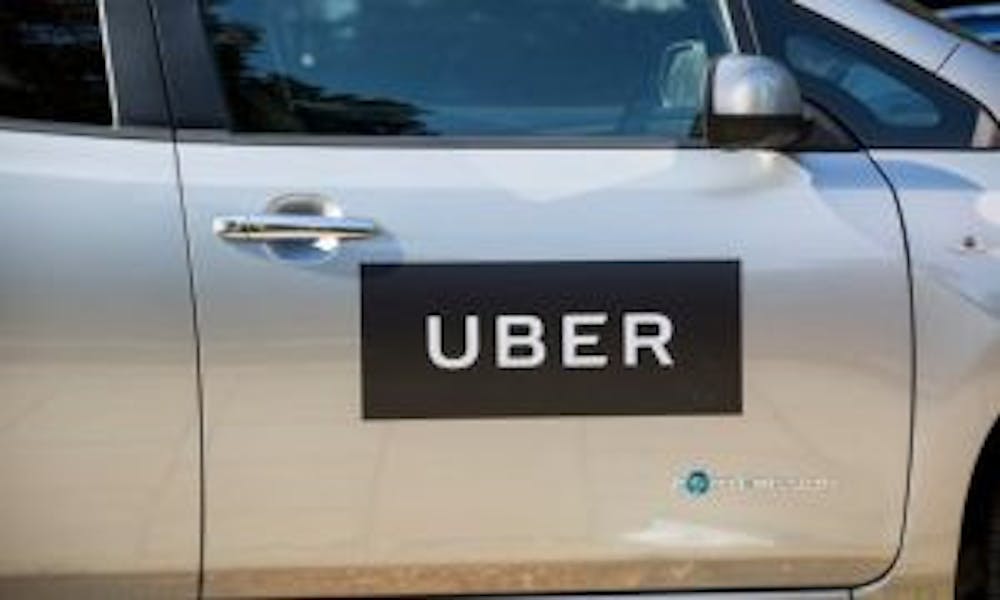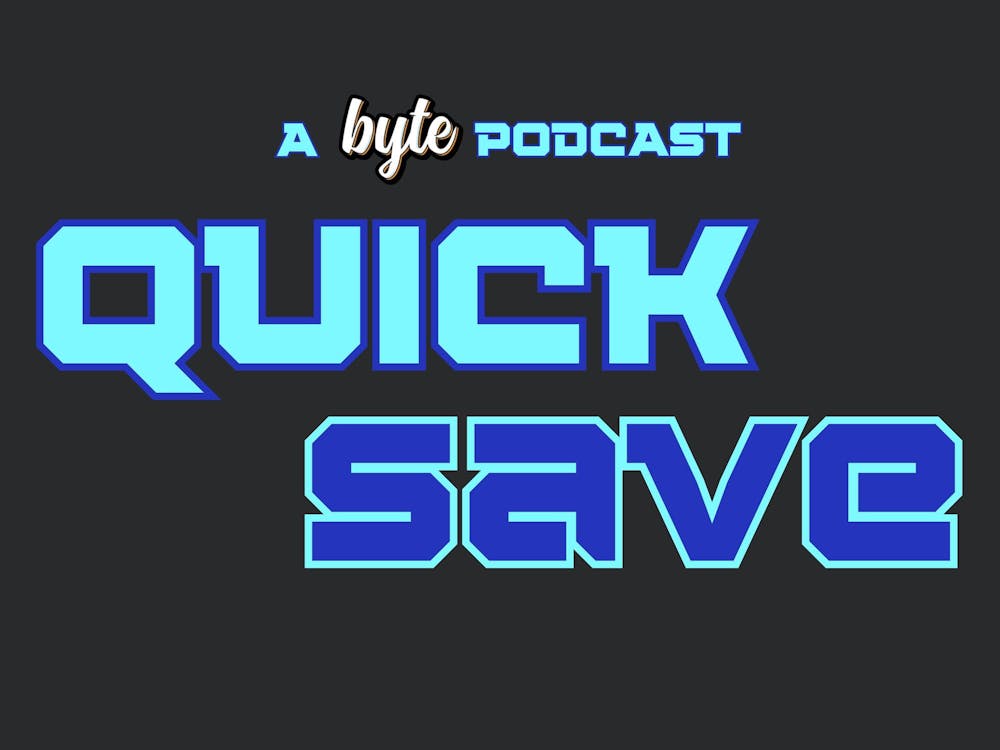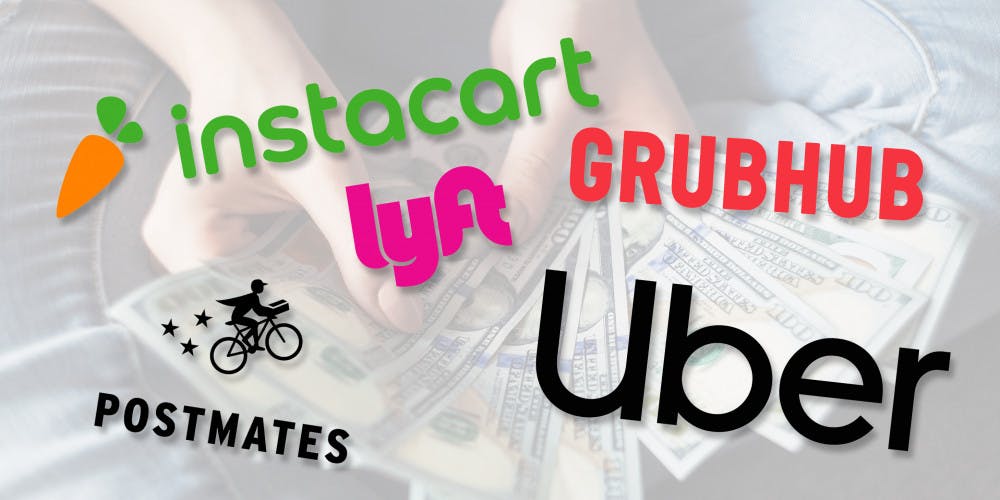by Chris Hutton
For the average Ball State University student, income is essential. While the university does provide flexible job opportunities that work with your schedule, they rarely pay more than minimum wage and are capped at 20 hours per week. It’s hardly enough to make a living wage. Some students may seek out ways to make money without signing a contract or being restricted to the work schedule of another. Often, this leads to students seeking out side gigs to make extra cash. In our technologically-advanced world, companies like Uber, Postmates, and Lyft are providing that side gig, where they deliver food or people to their preferred destinations.
This is what economists now call ‘the Gig Economy,’ where individuals are treated more as contractors who perform select tasks, rather than employees who work some hours and get benefits. If you’ve ever heard or seen an ad from Postmates, Uber Eats, Instacart, or Grubhub, then you are seeing the gig economy in action. In fact, we’ve even seen it go solely online with Amazon Mechanical Turk, a service that will pay you low rates to perform menial tasks online.

Low rates
Market saturation
This all assumes that you can, in fact, make enough to reach that average rate. More often than not, the market for such interests is already quite saturated. The average student would have a better time finding hours in a larger city like Honolulu or Houston than in a smaller town like Muncie. When I applied to Instacart as a potential delivery driver, I was flooded with notifications and messages that offer the impression that there was plenty of work out there for a new driver like myself. Unfortunately, as I signed up, I found that the ‘shifts’ (which is how Instacart organizes its drivers) in the county had already been taken for the next few weeks and months, making any attempt even to begin to develop income via the business difficult. The closest location that had any need of Instacart delivery drivers was Rushville, a town that was over an hour away. The company’s recruitment ads may imply that there are open positions near your location, but any attempts at applying for shifts/rides become even harder as others perform the positions for you. New Uber drivers who begin work in locations like Muncie or Lafayette would have a similar struggle. The market has expanded significantly since 2010, estimating 69% more vehicles driving for Uber. But as the company develops, it also makes it harder to find hours. In smaller towns like Muncie, a driver may find it harder to parse out to justify the costs as mentioned above. It may not be as easy as they would like, perhaps even pushing them toward odd hours in hopes of earning a few dollars on the hour that may not be beneficial for healthy college life.Unethical payment practices
What makes all of this even more concerning is the questions of ethics and income. While these companies are worth billions and continue to grow, they appear to consistently lose income. Uber, the largest out of them all, has reportedly lost 5 billion dollars in the last quarter. One notable case recently was with the company DoorDash. Like many delivery food service companies, these apps let you tip the driver after their service. However, if you do so via the app, the company has it designed where the base pay is decreased so that you always get the same flat rate no matter what you are tipped. Instacart also had a recent controversy earlier this year, where their employees made similar complaints about them .In other words, these companies are flailing to make enough money to survive, and as such, they are using small tricks and program errors to minimize their cost and maximize their profit, behaviors that put both the customer and contractor in a bad place. These sorts of practices seem minute, but they reveal that these companies are playing to certain loopholes in order to save costs and make additional income. This particular practice is illegal since, in your normal tip-based income employment, an employer taking your tips is against the law. This is likely due to the contractorial state of employment under these companies. Your average Uber driver is considered (in legal terms) to be a contractor, which means that they do not have the same rights to benefits or an average wage. This makes the practice, in essence, a bending of the rules for the sake of minimizing costs and not giving the employees what they deserve; a reliable wage and proper treatment. Some states are combatting this to the best of their ability, but Uber has claimed that past rulings in court may allow them to evade this law.Uber remains a deeply unethical and untrustworthy company _precisely because_ they lopped off the head without dismantling the structure it built.
— Sarah Mei (@sarahmei) September 18, 2019
Your future?
Companies like Uber and Instacart are, in many ways, reflective of our future as potential employees. While their total employee base is only a little part of our society, Futurists and economists suspect that we will see contractor positions become a more significant part of our community . This makes it essential for consumers and contractors to demand a fair wage; making it clear that they cannot be misused by this company and must treat them properly. BSU students should consider these factors as they order their next ride, call their next food delivery or even consider joining the bevy of students who want to make money by ridesharing. If you wish to continue to use these services, then be sure to do simple things to help the individual out. Make sure you tip. And if you do tip, tip them in cash. Advocate for fair treatment of the employees. And above all, make sure that you are polite and reasonable when it comes to interacting with these drivers. After all, they’re equal to you.Twitter NACo Amazon Craigslist Slate Indeed Glassdoor Ridester Brookings Tech Crunch The New York Times Department of Labor Vox Medium Upwork The Guardian



















